Key takeaways:
- Long COVID symptoms can be diverse, including debilitating fatigue, cognitive fog, and emotional challenges, significantly impacting daily life.
- A multifaceted treatment approach involving physical rehabilitation, cognitive behavioral therapy, and tailored medications can help in recovery.
- Community support and personal coping strategies, such as pacing, gentle exercise, and mindfulness, are crucial for dealing with the ongoing effects of long COVID.
- Documenting experiences and celebrating small victories can aid mental clarity and foster hope during the recovery journey.
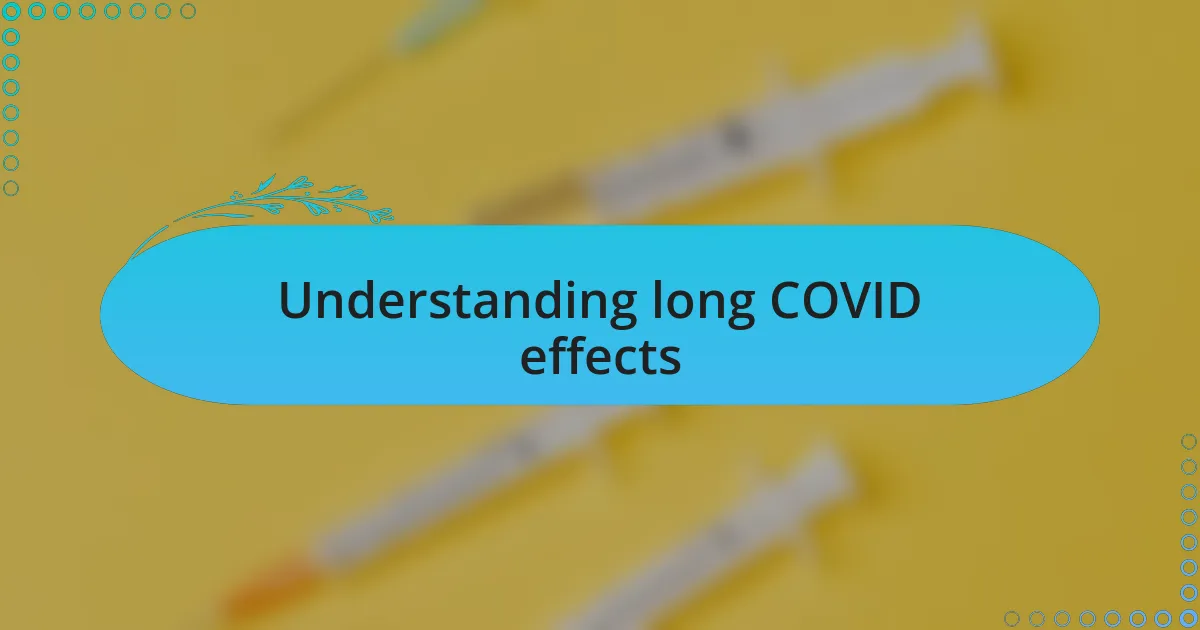
Understanding long COVID effects
Long COVID is like a shadow that lingers long after the initial storm of the virus has passed. I remember talking to a friend who thought he had bounced back completely; however, a few weeks later, he struggled to run just a block without gasping for air. It made me wonder, how can something so invisible wreak such havoc on one’s body?
The emotional toll of long COVID can be just as significant as the physical symptoms. I’ve seen people navigate through feelings of frustration and isolation, grappling with fatigue that seems to come out of nowhere. It raises an important question: how do we find the strength to cope when each day feels like a battle against an unseen enemy?
It’s fascinating—and a bit concerning—that long COVID effects can manifest in varied ways, from cognitive issues to loss of taste. I’ve heard stories about individuals suddenly losing their ability to concentrate, leaving them feeling scattered and detached. This leads me to ponder: what support systems are truly in place for those facing these persistent challenges, and how can we better address their complex needs?
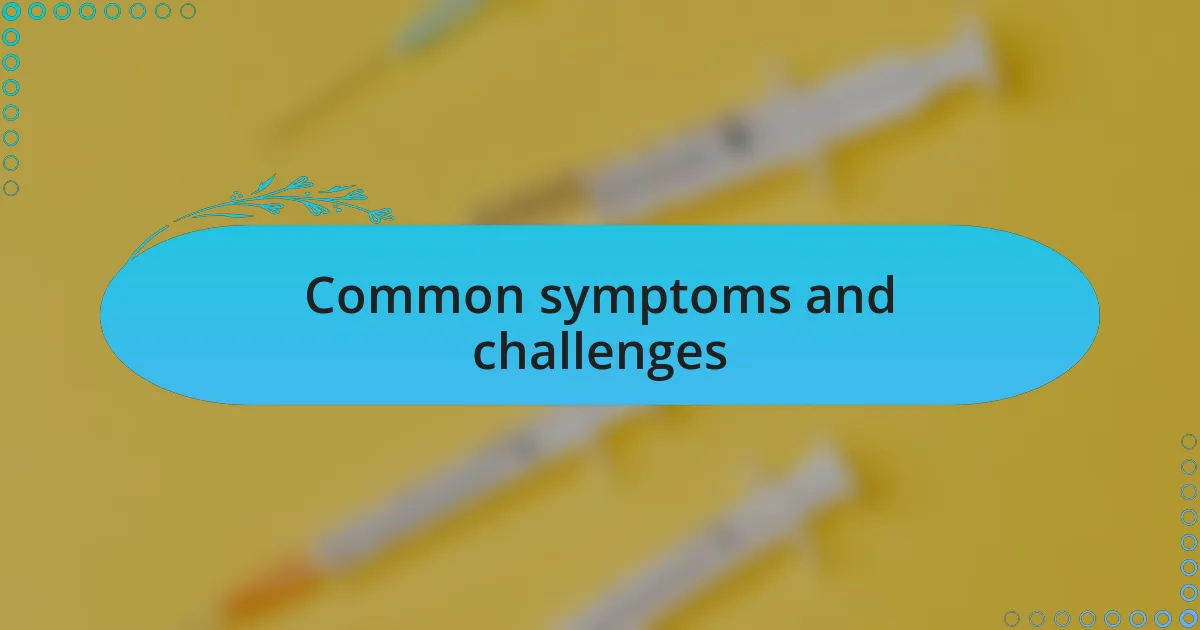
Common symptoms and challenges
It’s striking how diverse the symptoms of long COVID can be. Many people I’ve spoken to complain about debilitating fatigue, which feels as though it saps their energy down to the bone. Imagine waking up every day, hoping to feel normal again, only to find that even simple tasks like grocery shopping leave you exhausted.
Another common challenge is the cognitive “fog” that some experience. One of my colleagues described his frustration as he struggled to remember simple words during conversations. It’s maddening when your brain feels out of sync with your thoughts, leaving you feeling vulnerable and anxious. How do you work when your mind is a few steps behind?
Moreover, the emotional impact of living with lingering symptoms can’t be underestimated. I have seen friends become withdrawn, battling feelings of hopelessness as they watch their peers thrive. It makes me wonder: how do we create compassionate communities that not only understand these challenges but actively support individuals through their recovery journeys?
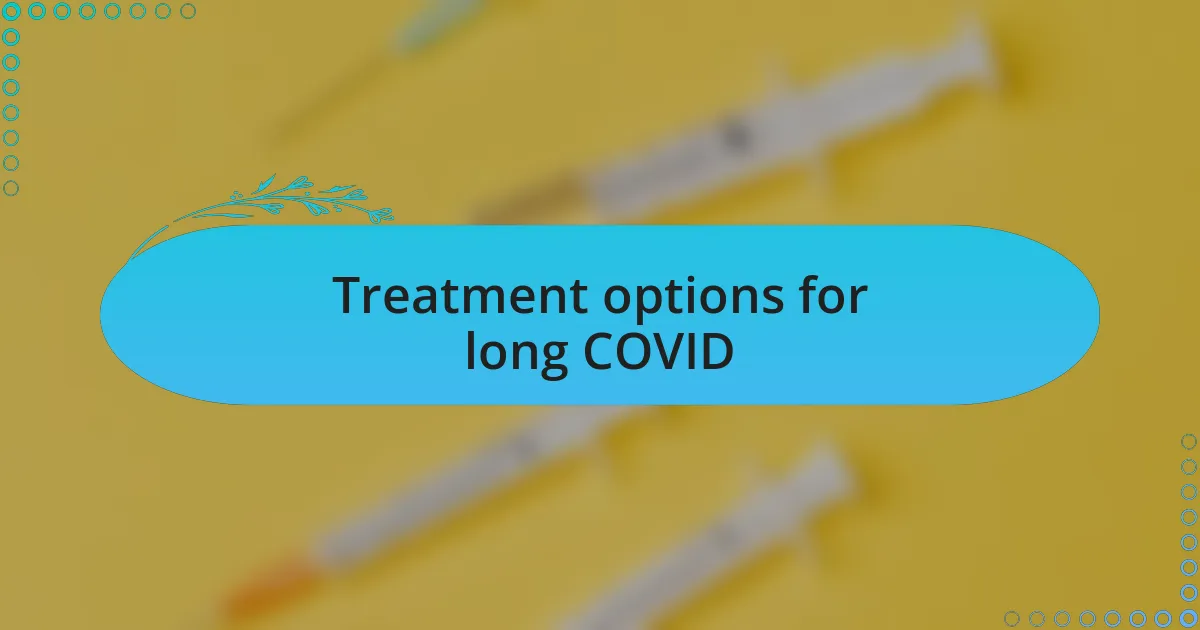
Treatment options for long COVID
When it comes to treating long COVID, a multifaceted approach often brings the best results. Many healthcare professionals are recommending a combination of physical rehabilitation and cognitive therapies. I recall a friend who began a tailored exercise program focused on pacing herself. Over time, she noticed not just improvements in her energy levels but also a reduction in anxiety, which was a pleasant surprise for both of us.
Alongside physical rehabilitation, exploring cognitive behavioral therapy (CBT) has shown promise. It’s fascinating how addressing the psychological aspects can significantly impact physical health. A colleague of mine participated in a group CBT session and shared how tackling negative thought patterns helped her regain some control in her life. It’s experiences like these that make me think: how often do we overlook the mental aspect of recovery in favor of just treating physical symptoms?
Medications can also play a role, especially for managing specific symptoms like severe fatigue or pain. I often hear stories of patients working closely with their doctors to find the right balance, sometimes taking several months to discover an effective regimen. This trial-and-error process can be exhausting, but it raises the question: isn’t it worth the effort if it leads to even small glimpses of improvement?
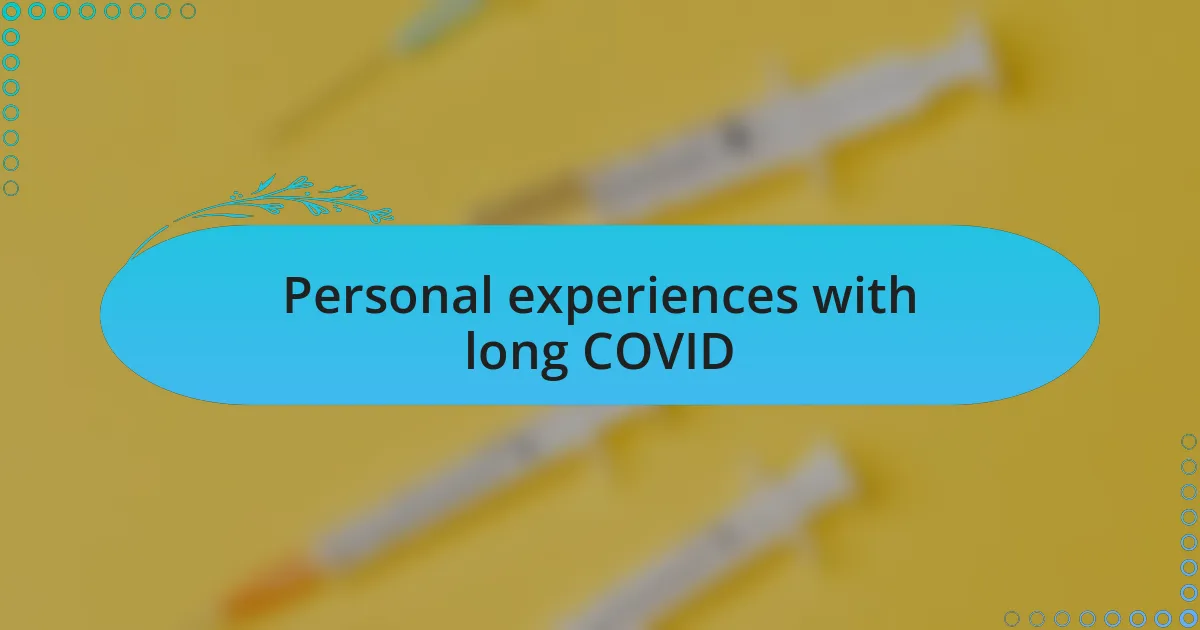
Personal experiences with long COVID
Dealing with long COVID has been a rollercoaster ride for me. In the beginning, I experienced a foggy mind that made even simple tasks feel daunting. I remember a particularly challenging day when I struggled to concentrate on a book I loved; it felt like the words were dancing just out of reach. Have you ever felt that frustration? That was my reality for weeks, and it really took a toll on my confidence.
A turning point came when I began to reconnect with others who shared similar struggles. It was comforting to hear their stories, each tinged with empathy and understanding. One evening, while sharing experiences over a video call, I realized that we were all going through our own battles but could still lift each other up. This sense of community disarmed some of my feelings of isolation, which had been one of the hardest aspects of living with long COVID. How powerful is it to know that you’re not alone?
I also found solace in journaling my journey. Documenting my ups and downs not only gave me clarity but also helped me celebrate small victories, like finally taking a short walk without feeling utterly drained. It’s vital, I think, to recognize those incremental improvements in our health. Have you taken time to appreciate your progress? Remembering that each step, no matter how small, is part of a larger journey toward recovery can make all the difference in maintaining hope.
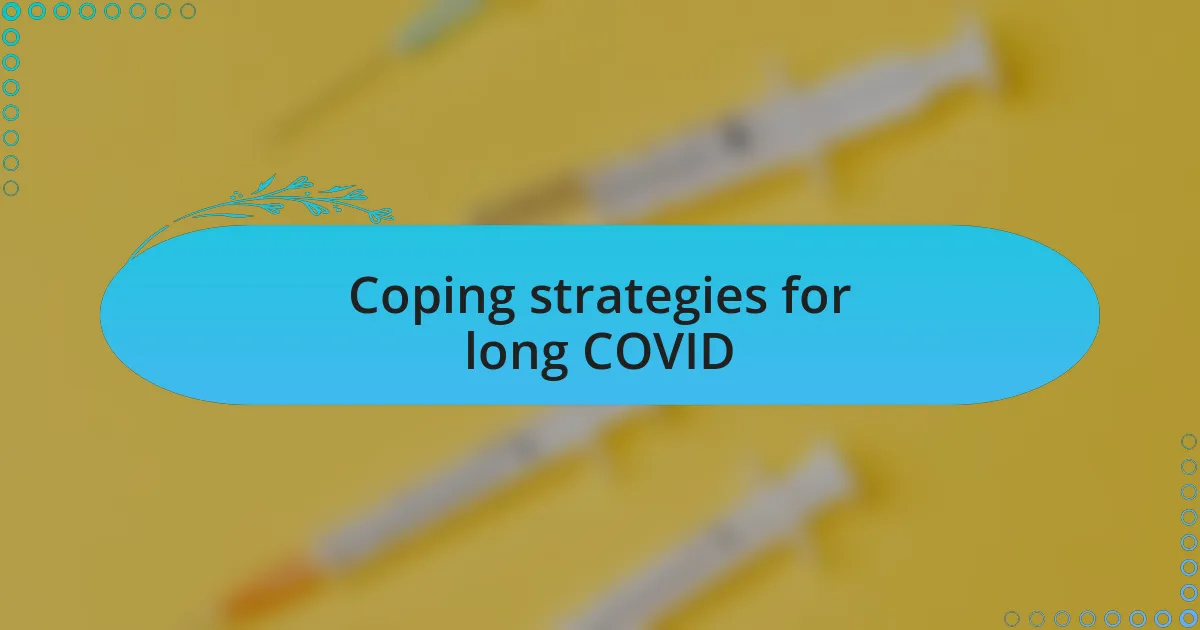
Coping strategies for long COVID
Finding effective coping strategies for long COVID has been essential for me. I quickly realized that pacing myself was crucial. Some days, I would push too hard and then pay the price the next day with overwhelming fatigue. Have you found yourself caught in a similar cycle? It taught me the importance of listening to my body and honoring its limits.
Alongside pacing, I discovered the benefits of light stretching and gentle yoga. I remember feeling stiff and achy after long periods of sitting. When I incorporated even a few minutes of stretching into my day, it felt like I was almost waking up my body, reenergizing my spirit. What simple movements have you tried that made a difference in how you felt? These small actions are not just physical; they’ve also been a soothing balm for my mind.
Mentally, I embraced mindfulness practices as a way to manage anxiety. One day, when worries about my health spiraled, I’d sit quietly and focus on my breath. I felt as though I was grounding myself in the present moment and letting my fears fade into the background. Have you ever tried a similar technique? Finding even a few moments of peace can be transformative when navigating the chaos of long COVID.